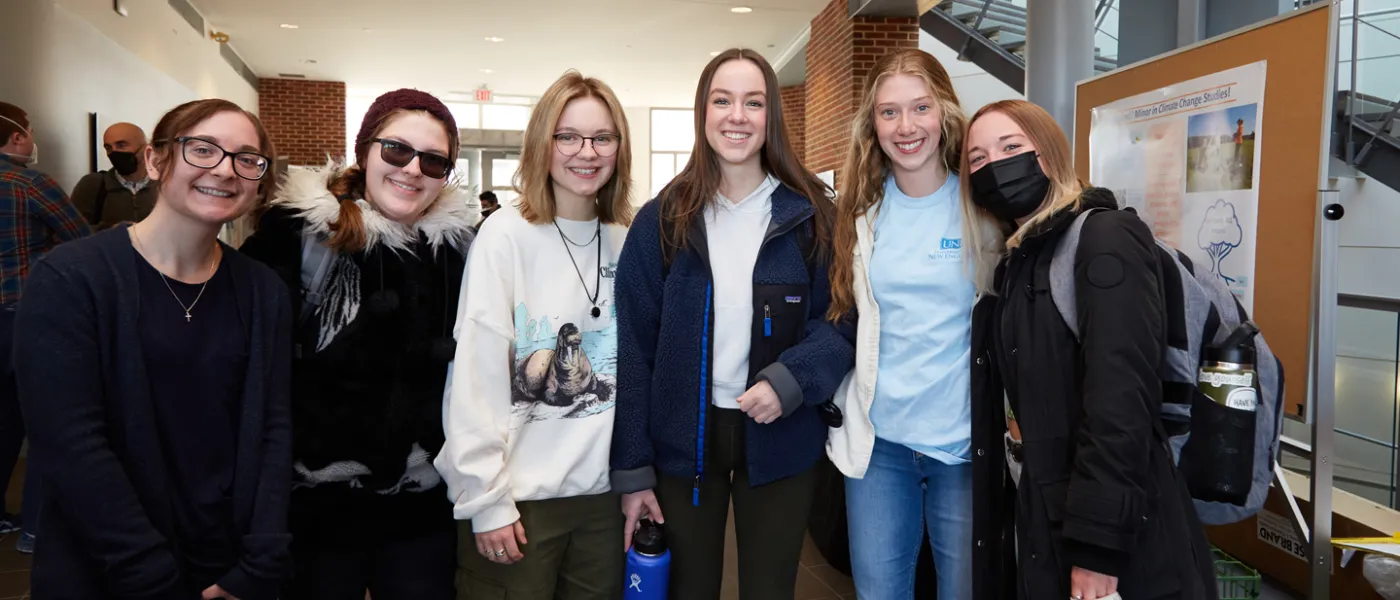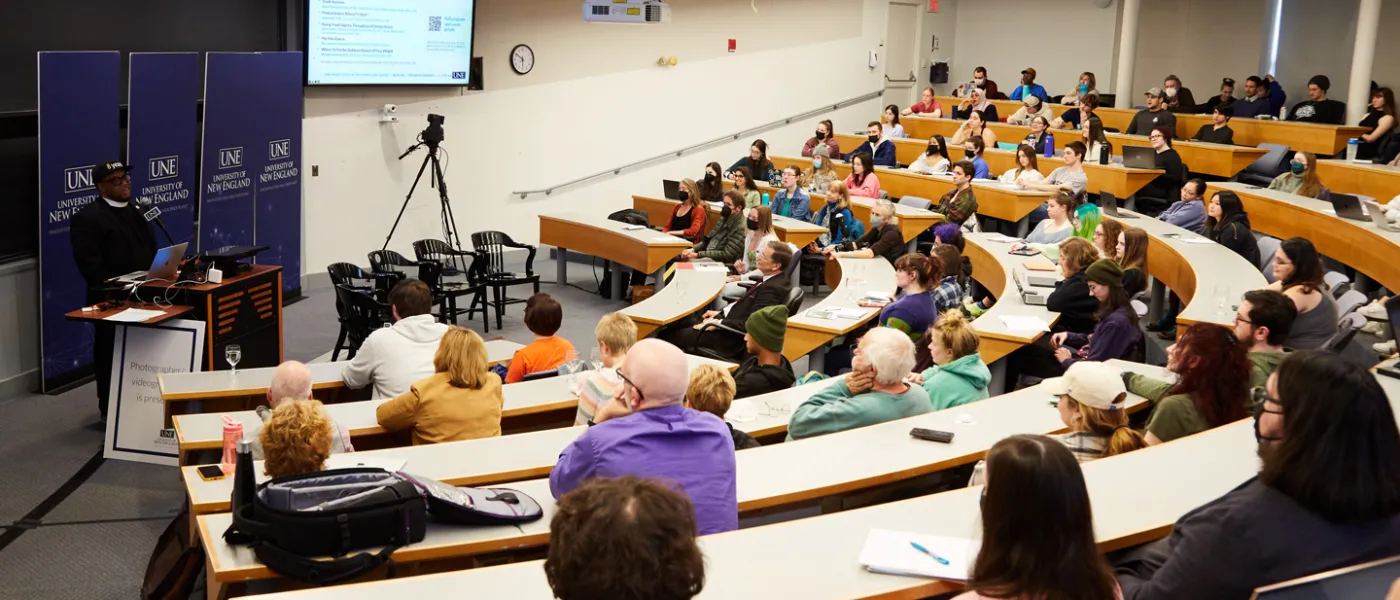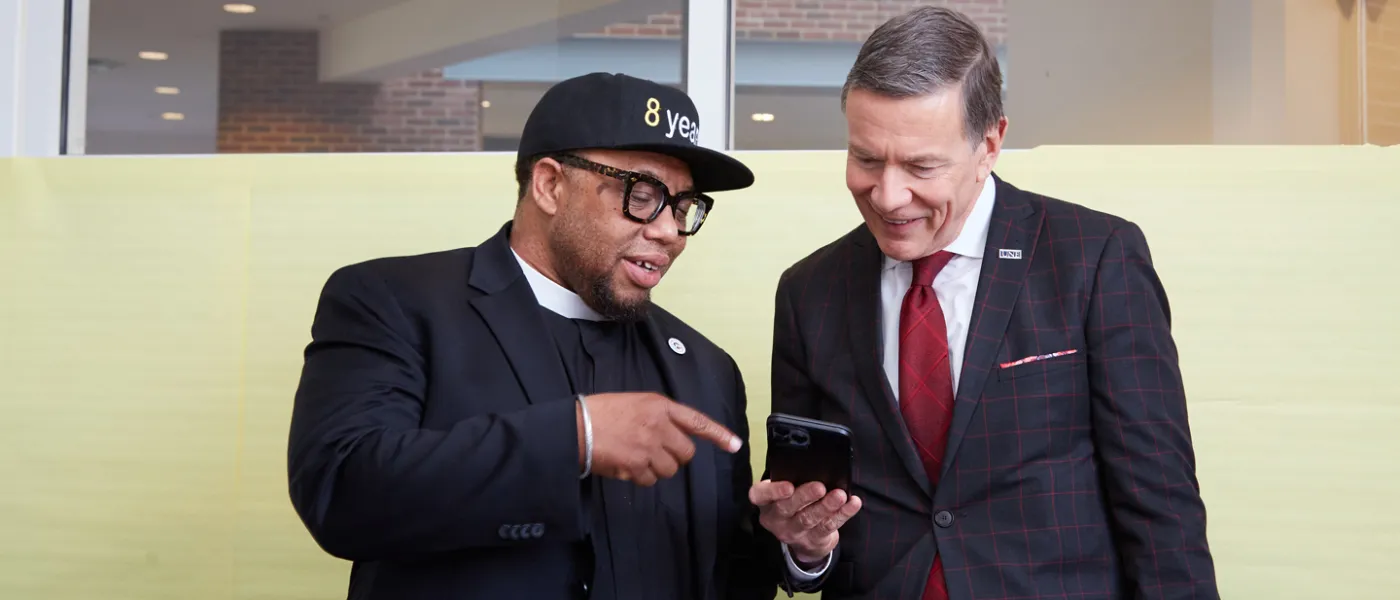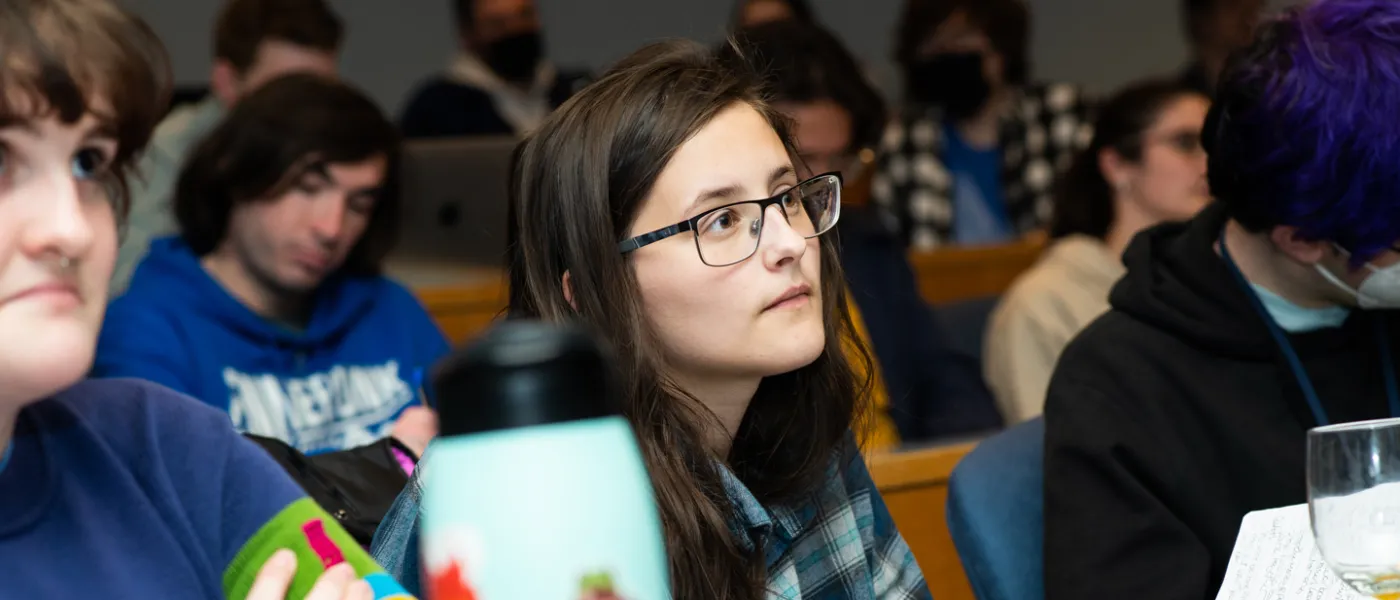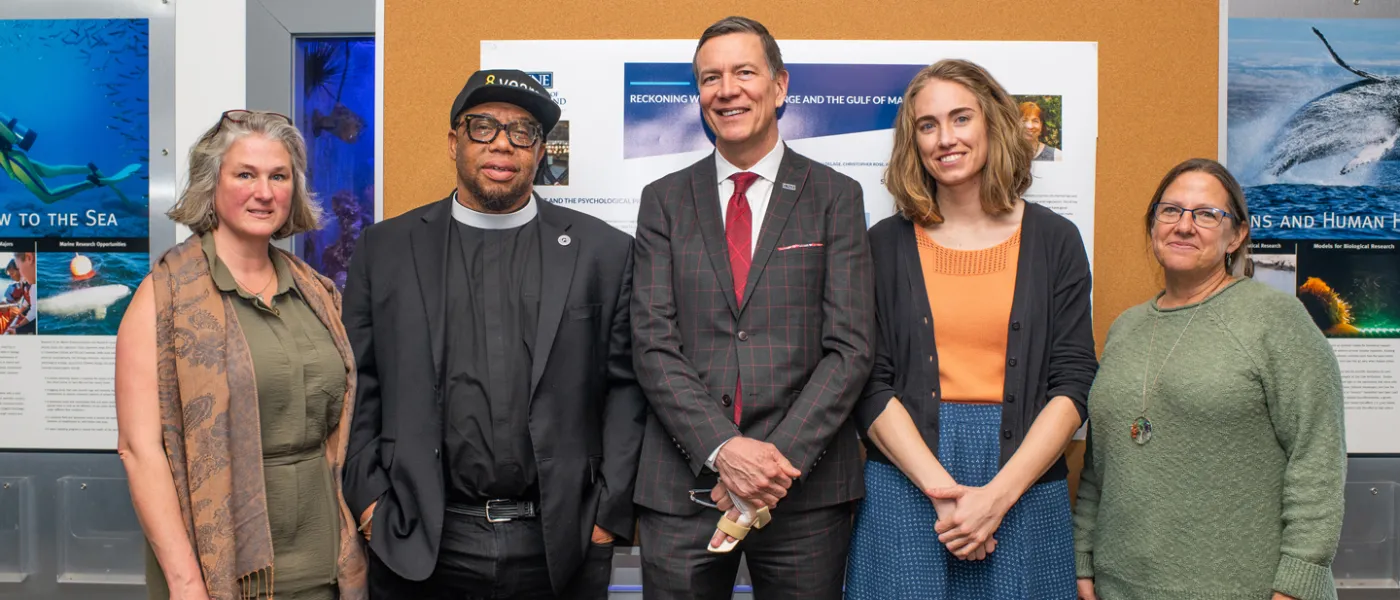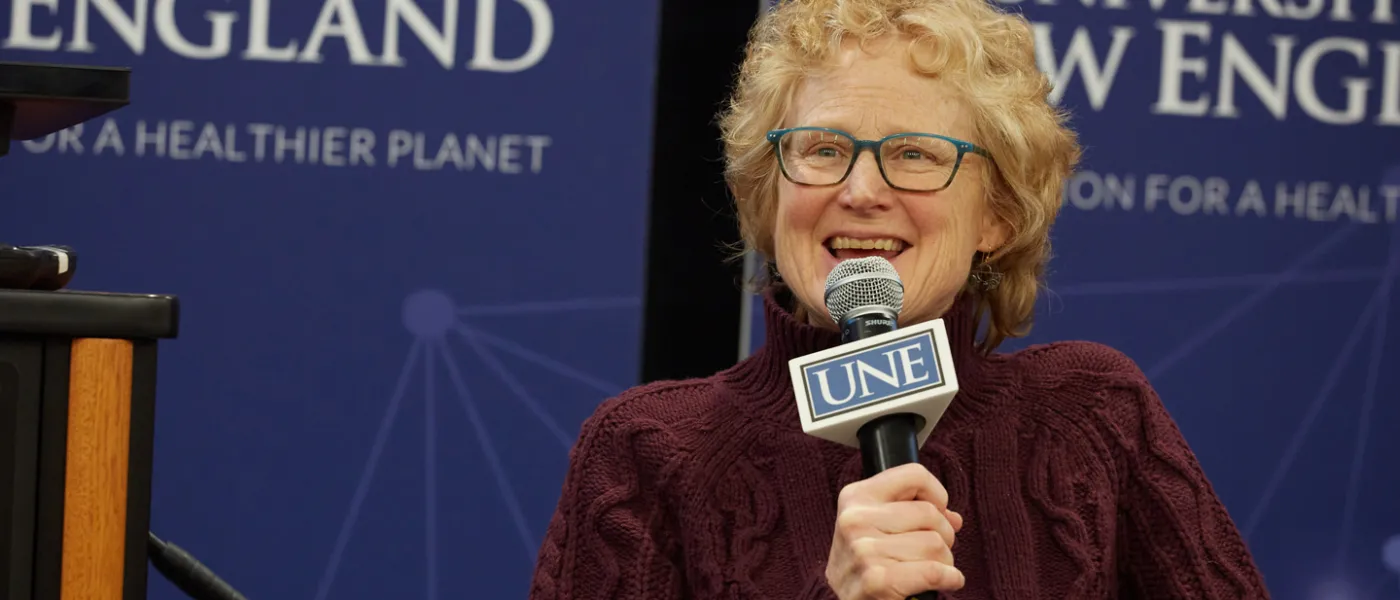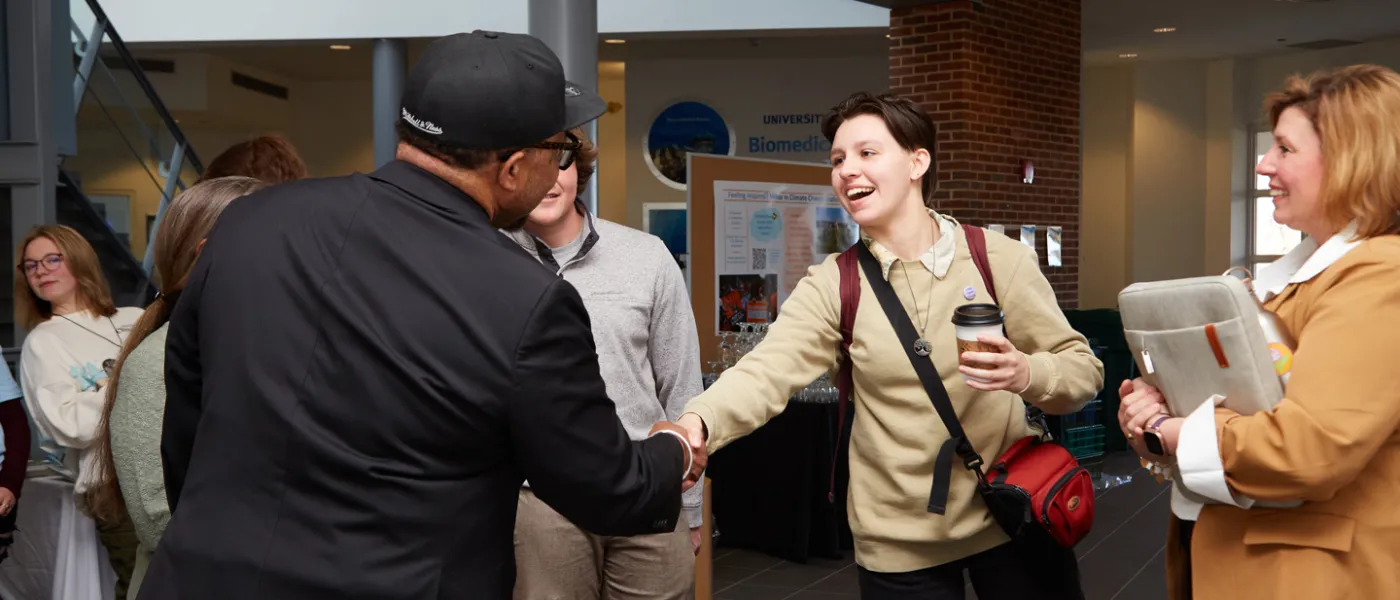UNE Hosts Climate and Justice Teach-In
Hundreds gathered on the Biddeford Campus on Wednesday, March 30, to engage in multiple conversations about the state of climate change and environmental justice, as the University of New England hosted the One-Night Teach-In on Climate and Justice.
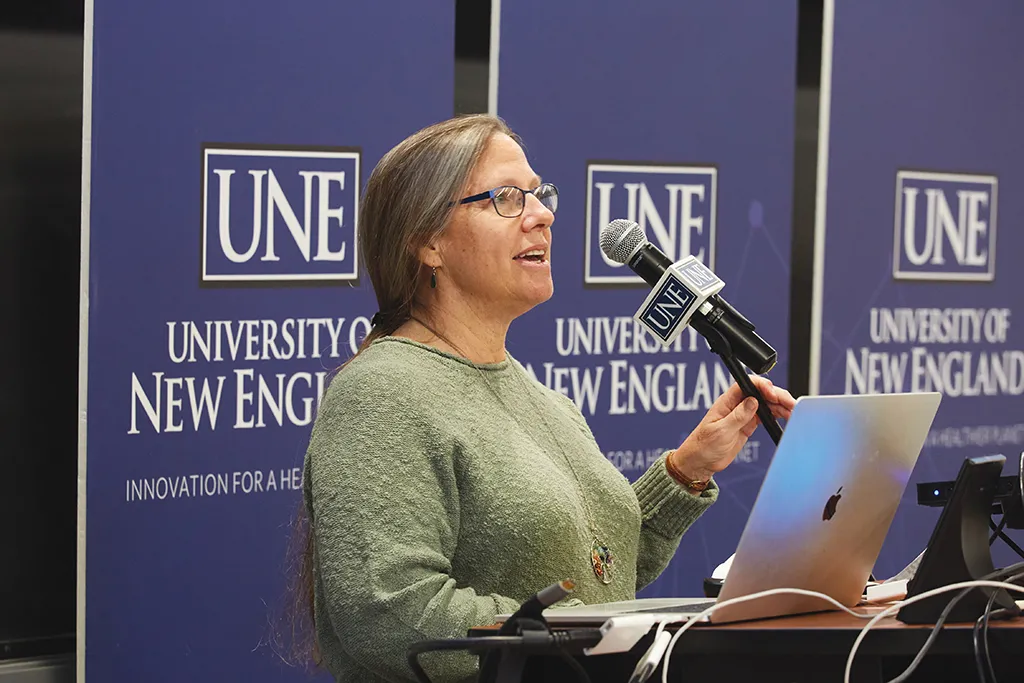
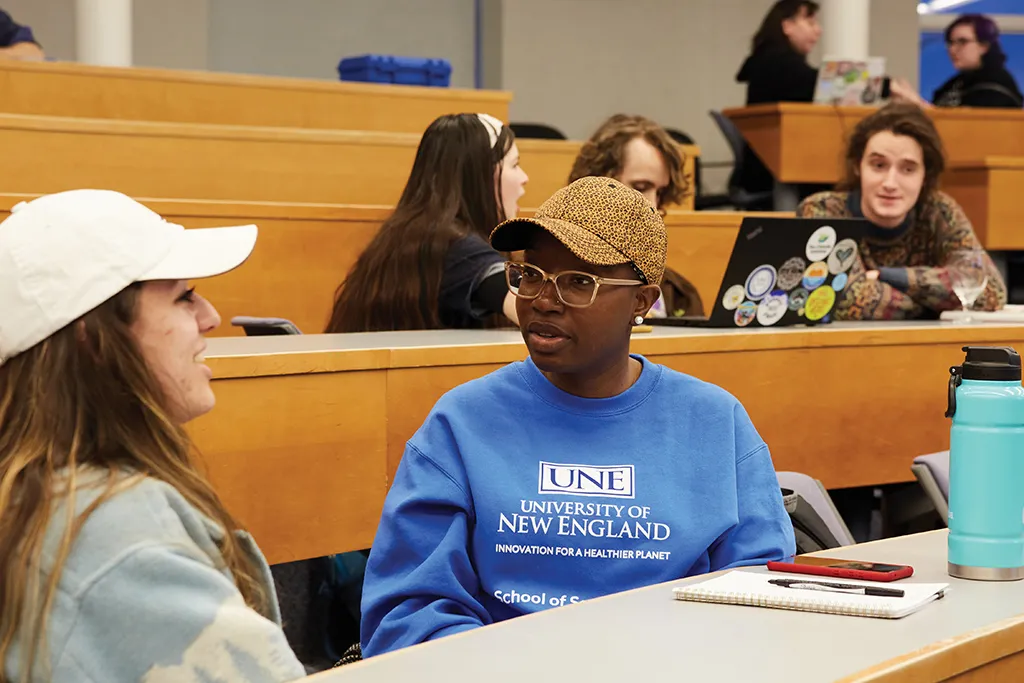
UNE joined more than 300 colleges and universities across the globe as part of the Worldwide Teach-In on Climate and Justice, an initiative of the Solve Climate by 2030 project, led by Bard College. The collaborative event was produced in partnership with UNE's Center for Excellence in Collaborative Education (CECE), with funding from The Climate Initiative and the Kennebunkport Conservation Trust.
The teach-in focused on seven panels related to climate change, presented by dozens of UNE faculty, students, and guest speakers from across the University, plus a keynote address by Rev. Lennox Yearwood Jr., president of the Hip Hop Caucus.
Yearwood began the event by telling the audience how he became involved in climate activism following the devastation of Hurricane Katrina, which ravaged his hometown of New Orleans. “I watched poor people — Black and Brown people — drown to death in the richest country in the world,” he reflected. “When our planet turns against us, that is the horrific consequence of the climate crisis … and the one thing about this crisis we’re in is that it’s a real crisis that we as humanity have to solve.”
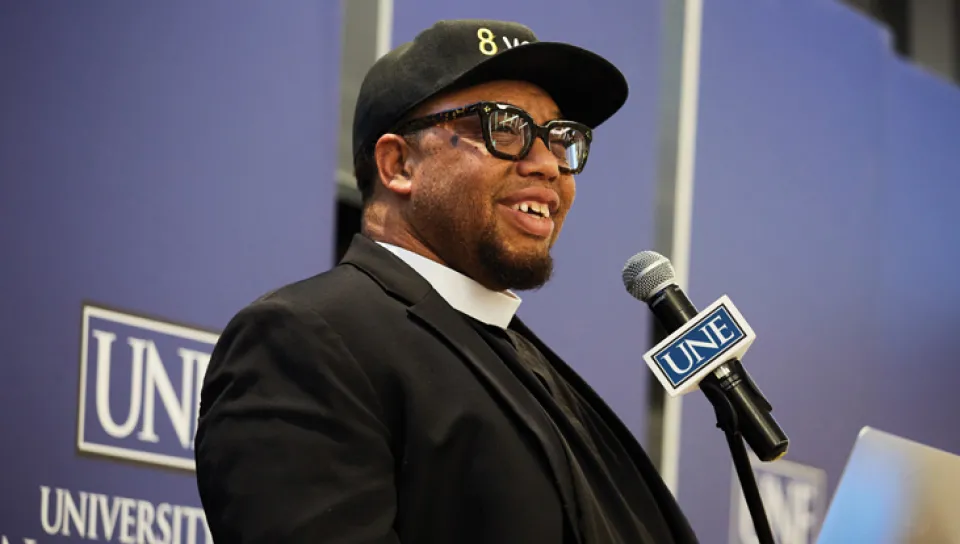

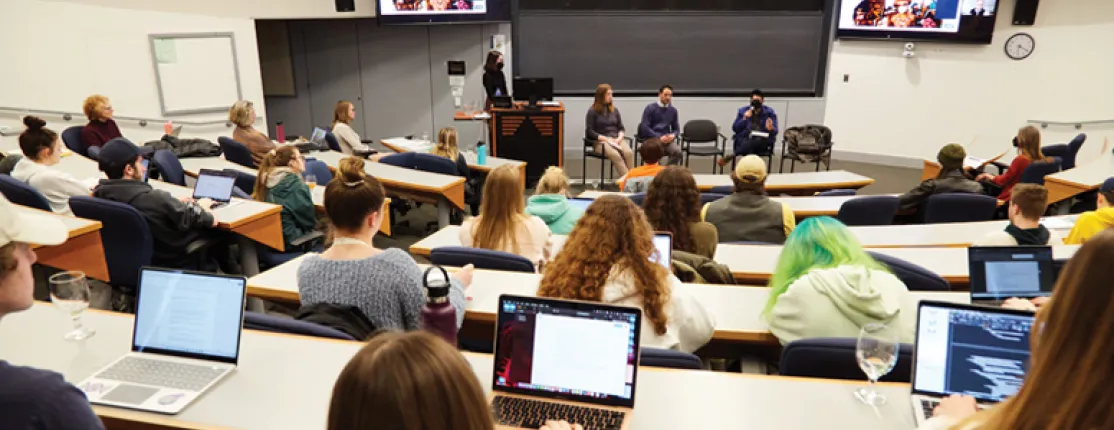
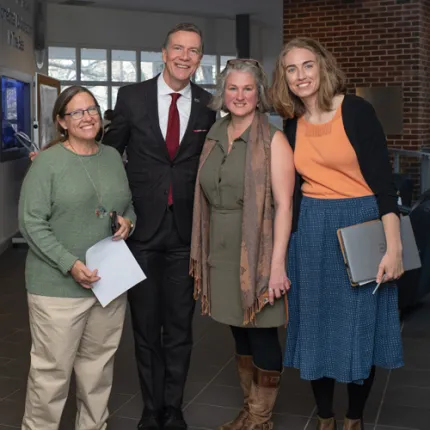
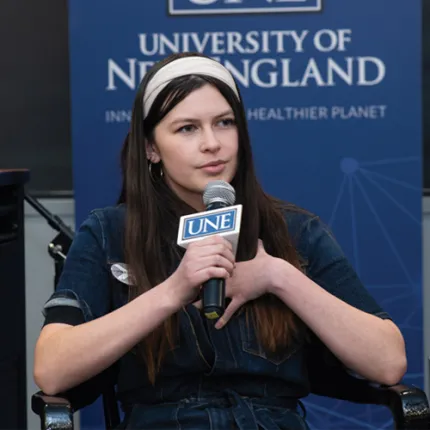
In solving the crisis, Yearwood said that people must seek climate justice — the notion that climate change can have differing adverse socioeconomic and public health effects on underserved populations. “We are on a pathway for destruction if we do not break down the silos that impact other communities,” he said. “We will not be successful if we as humans do not come together. Climate justice is racial justice, and racial justice is climate justice.”
Bonus Content: See Highlights from the Teach-In
Climate and Justice Teach-In Keynote
View Photos from the Climate and Justice Teach-In
